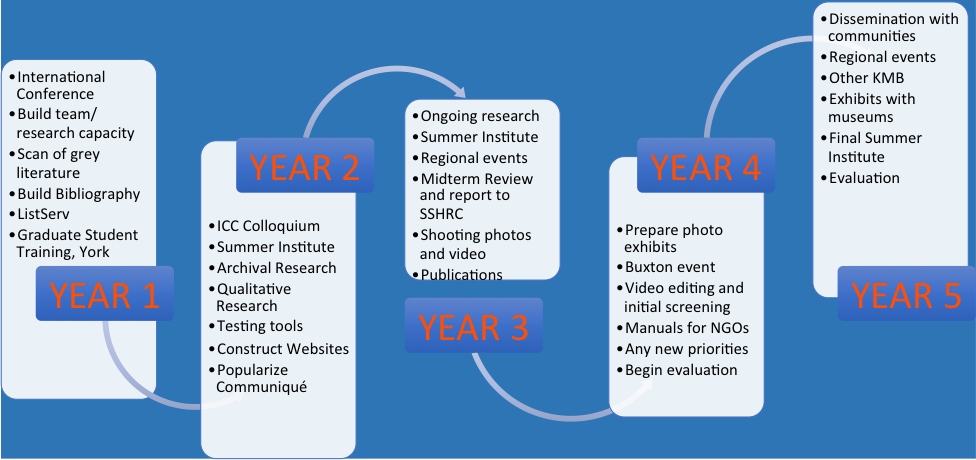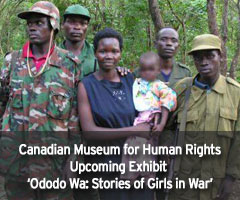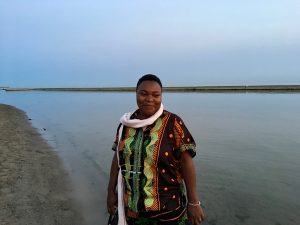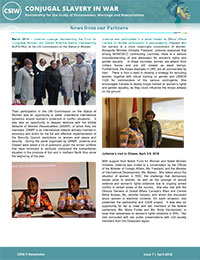This Partnership has its genesis in relationships built since the late 1990s and the Coalition for Women’s Human Rights in Conflict Situations. Many of the African Partners and collaborators were members of the Coalition. Since monitoring the prosecution of gender violence at the International Criminal Tribunal for Rwanda, the partners have been working in Sierra Leone, Uganda and DRC to track the developments of international criminal law, national laws, and local reparations programs. In addition to legal monitoring, the Partners have gathered over 250 interviews with survivors of abduction and forced marriage in conflicts and gathered relevant historical material (2013-15).
Based on the empirical and archival research conducted to date with the support of the PDG (and an IDRC grant), a number of important themes have emerged which demand further attention. In particular, the Partners aim to fill these gaps in knowledge and contribute to:
- Research on men’s experiences of ‘forced marriage’ (being ordered to be violent) and masculinity in these conflicts;
- The need for deeper qualitative research on the relationship between wartime violence and existing/ historical gender norms;
- The post-conflict impact of stigma on children born of war;
- And finally, the ongoing debates about the effectiveness of the tribunals and commissions, including government and international reparations programs.
The CSiW/ ECtG Partnership hosted a very successful launch conference and team meeting in Kinshasa, Democratic Republic of Congo (DRC) in February 2016. With the collaboration of our Congolese Partner, SOFEPADI, we held a two-day international conference on the topic of forced marriage in war, shared existing knowledge in our field with a broad audience including other researchers, Embassies, and non-governmental organizations, and popularized our project within DRC.
The Partners determined to work over a five-year time frame for the co-creation of knowledge on histories of marriage and slavery, justice mechanisms, gender and masculinities, and children born of war. The duration of the project allows the team to gather data for approximately three years and analyse and mobilize the knowledge over the latter two years.







